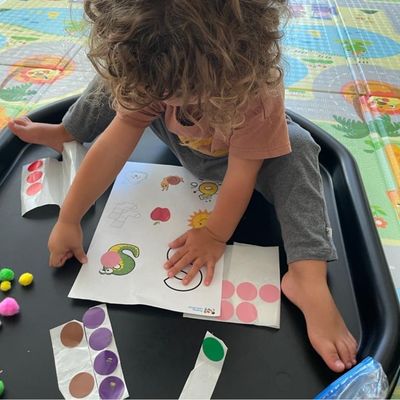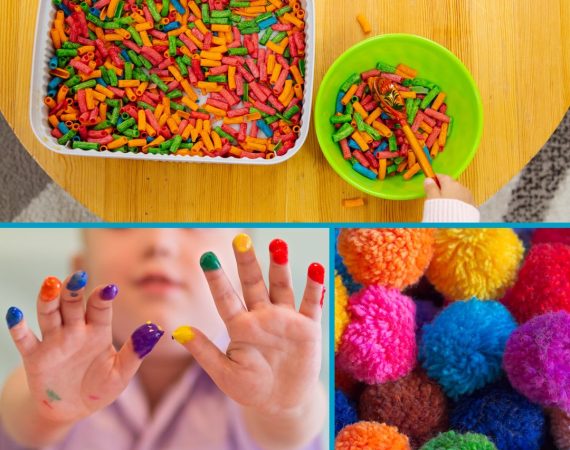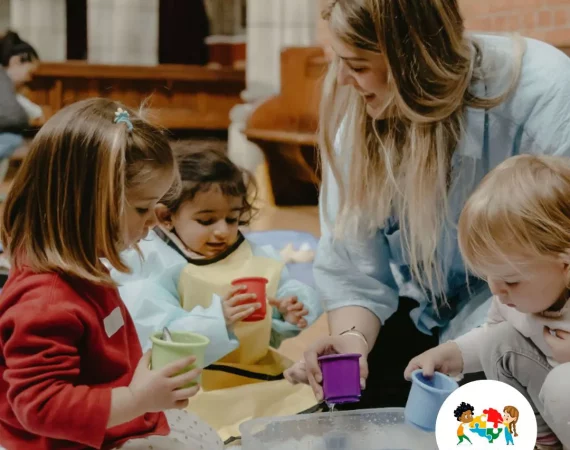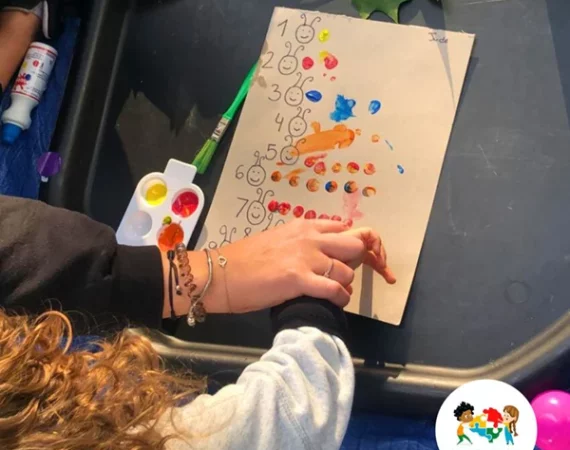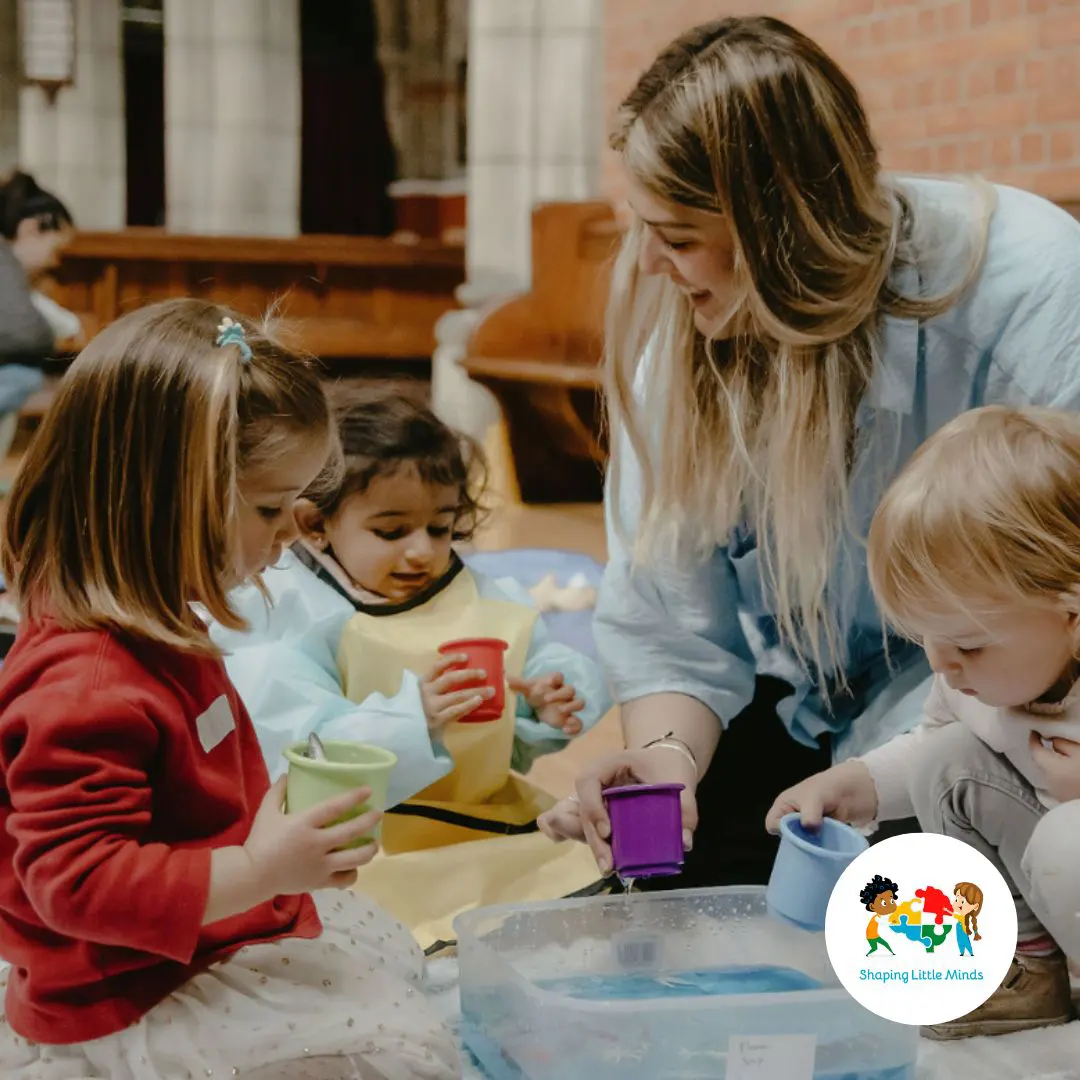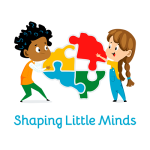At Shaping Little Minds, we believe playtime is a sensory smorgasbord for curious minds of all ages! That’s why our London sessions are designed for babies and toddlers (up to 4 years old) to explore messy and sensory play together. But what exactly is it, and why is it such a powerful tool for little learners?
A Sensory Symphony: Unveiling Messy & Sensory Play
Imagine a world where textures sing, colours come alive, and sounds create a playful symphony. That’s the magic of messy and sensory play! It’s all about providing opportunities for little ones to explore their environment through touch, sight, smell, sound, and even taste (in safe, supervised ways of course!). This can involve anything from squishing colourful gloop to pouring vibrant grains, building sandcastles, or making music with everyday objects.
Benefits for Budding Minds (and Tiny Hands!)
The beauty of messy play lies in its simplicity. While it might appear like pure fun (and it is!), the benefits for little ones are vast, regardless of age:
- Sensory Development: From babies discovering soft textures to toddlers exploring wet and dry sensations, messy play refines senses and builds a strong foundation for learning.
- Motor Skill Boost: Squishing, pouring, scooping, and stirring – all these actions contribute to developing fine motor skills, essential for everyday tasks in the future.
- Cognitive Exploration: Through messy play, children of all ages experiment, problem-solve, and make connections. Building sandcastles teaches cause and effect, while mixing colours sparks curiosity.
- Language Development: Describing textures, colours, and shapes fuels communication and expands vocabulary for everyone involved.
- Social Interaction: Playing alongside others in a messy environment fosters teamwork, creativity, and social skills, no matter the age.
- Emotional Well-being: Sensory play is calming and helps manage stress and anxiety. The freedom to explore and express themselves in a safe space boosts creativity and confidence in both babies and toddlers.
Shaping Little Minds: Messy Play for Every Stage!
At Shaping Little Minds, we design our sessions to cater to different developmental stages, ensuring every little one gets the most out of the mess! Here’s a peek:
- For Babies (0-18 months): Sensory bins with soft textures, edible exploration trays, and colourful light displays create safe, stimulating environments for tummy time, visual tracking, and exploration.
- For Toddlers (18 months – 4 years old): A variety of materials like play dough, water beads, kinetic sand, and shaving cream allows for more active exploration, experimentation, and imaginative play.
- Sensory Fun for All: We incorporate music, bubbles, and storytelling into our sessions, creating a rich sensory experience for everyone involved.
- More Than Just Mess:
- We understand the “messy” part might make some grown-ups nervous! But remember, the focus is on learning and exploration, not pristine play areas. We provide all the materials and ensure a safe, supervised environment for little ones to unleash their inner explorers. Plus, we offer tips and guidance to recreate the sensory fun at home!
- So, come join Shaping Little Minds and let your little one dive into a world of messy and sensory exploration alongside other curious minds! It’s a guaranteed recipe for giggles, learning, and unforgettable memories for babies and toddlers alike.

